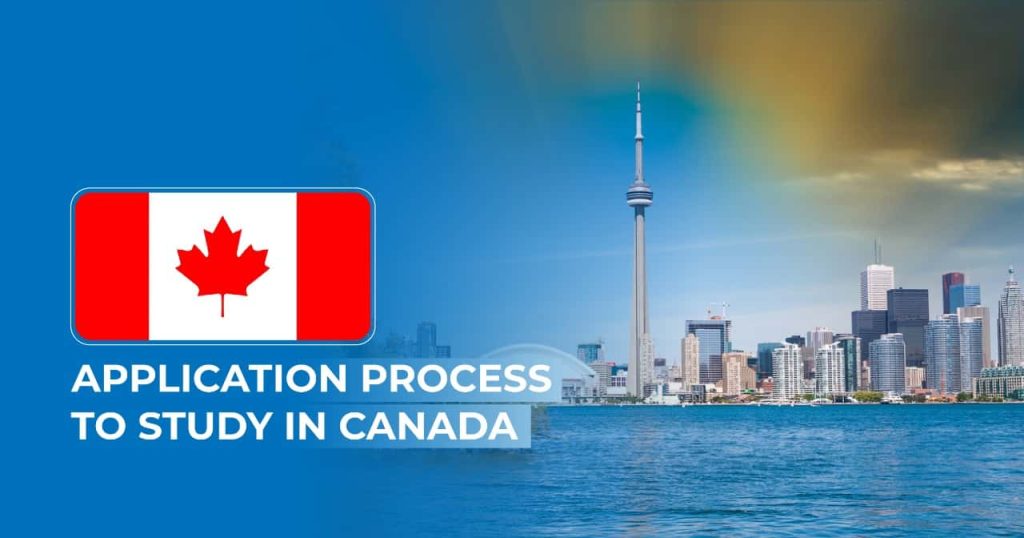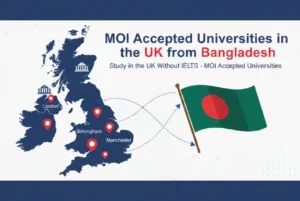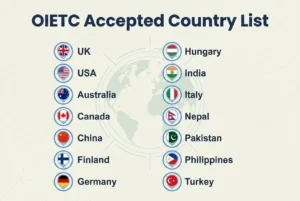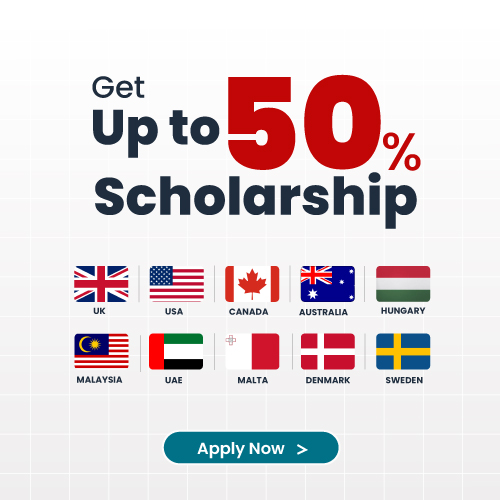Canada is a country that has always been a great study destination for international students. Numerous scholarships and educational help are available for international students studying in Canada. Most study abroad students dream of a study destination that can help them succeed in academic and career life. Knowing about the application process in Canada will ease your work and help you to learn about the steps properly.
To study abroad, a student must analyze everything properly. Many things to research before deciding on one. Let’s know them one by one-
Research the universities before the Application Process
It’s better to research the university and the course before choosing one. When studying abroad, proper research can benefit you in many ways. When you have a course in mind, search for the course in the universities you have shortlisted. Compare the course fee and the location. When you research the universities and shortlist them, you will get an idea of the university, tuition fees, scholarship opportunities, and many more. This is the first step of the application process to study in Canada.
Tip: Not sure which university fits your goals? Our study abroad counselling service can help you research and choose the best options.
Choose a course that matches your career plan.
Canada is renowned for degrees in a multitude of fields. Whether you choose an undergraduate or postgraduate course, you will find lots of programs according to your choice. It’s better to plan your career first. Like where is your passion, and what do you want to be in the future? After that, select a study program related to your career plan.
Choose the Academic intake.
Choosing the academic intake is one of the essential steps while you make the application process to study in Canada. Canada usually has 3 intakes- The Fall, Winter, and Summer. The Fall is the primary intake and offers a large number of courses. Then it is followed by the winter intake. Those who have missed the fall intake usually choose this intake to study in Canada. The third intake in Canada is called the summer intake, in which the availability of the courses is low, and only some universities offer their courses through this intake.
So to make the application process to study in Canada, choose the intake first. It is important to choose the intake wisely and arrange all the necessary documents orderly.
Prepare the mandatory paperwork.
When you plan to study abroad, you have to arrange the basic required paperwork in advance which is mandatory to make an application. The mandatory documents that you need to provide while making an application are-
- Letter of Motivation
- Recommendation Letter
- Portfolio of previous work if needed
- Academic transcripts of the previous education
- English language proficiency test certificates if you are from a non-English speaking country.
Go through the university and check specific admission requirements.
Besides the basic documents, some universities might have specific requirements. Go through the university website to check if they want some particular requirements. The university you are applying to in Canada will handle your admission and application. So if you have any admission inquiries, contact the university website to know them. Interested students are allowed to apply to different programs and universities at the same time. This is an important application process to study in Canada.
Submit your application to the universities
Making an application is the primary but most important process of studying in Canada. Most of the applications in Canada are made online. You can find the application form on the university website. To make an application, you may require to pay an application fee. After completing the application form, attach all the necessary documents carefully and send them to the university.
Wait for the response to get admitted.
Now when you make an application, it\’s time to wait for the result. This is the most crucial moment of the application process to study in Canada. Once you have completed all the processes accurately, it will take approximately four to six weeks to make the application process. When the application authority finds your eligibility matches the entry criteria and everything is fine, they will send you a letter of acceptance. The letter of acceptance means you are ready and eligible to study in Canada.
Obtain the Letter of Acceptance
After applying to a Canadian university, the university can issue you two types of offer letters. They can be conditional or unconditional offer letters. The waiting time after the application process can be crucial. The next step after making an application can be exciting or frustrating. Hence, when you get the acceptance letter, you must check whether it is a conditional or unconditional offer letter. If you get the conditional offer letter, you need more time to get the eligibility to study in Canada.
On the other hand, getting the unconditional offer letter means you have already met all the required qualifications and are fully ready to start studying in Canada. When you get the offer letter, it’s time to apply for the visa.
Apply for Visa
Another application process to study in Canada is to apply for a visa as early as possible. Visa processing in Canada takes time. It may take up to 60 days to complete several procedures. The process to apply for a student visa to study in Canada is-
- Apply online on the citizenship and immigration Canada website for a Canadian student visa.
- If you cannot submit the documents online, send them documents by post.
- Provide the letter of acceptance from the DLI.
- A valid passport.
- Show the financial evidence to support your study.
- Letter of intent.
- Police clearance report.
- Proof that you paid the study permit fee.
- Medical certificates.
Arrive in Canada
Now that you are accepted by the university in Canada and get a student visa, it’s time to fly to start studying in Canada. There are no specific earliest dates to travel to Canada to begin education. But if you travel too early, the officer may have concerns about you. So it is better to arrive 4 weeks before the course start.
If you want to study in Canada, AIMS Education, a student consultancy firm, can provide you with strong guidelines for studying in Canada. We have Canadian professionals who can help you learn about Canada’s education system, do and don’ts, location, university, course, tuition fees etc.
FAQ -Frequently Asked Questions
Q. What are the steps to applying to universities in Canada?
Q. When can I apply for admission to study in Canada?
Q. Can I apply to Canadian universities without IELTS?
Q. Is it possible to work in Canada while studying?
Q. How long does it take to get a study permit in Canada after making an application?
Q. Can I apply in Canada with a study gap?
Q. What are the typical requirements to get accepted by the universities and institutions of Canada while making an application?
Q. Can I make an application to any Canadian University that is not DLI listed?
Q. Do I need a recommendation letter while applying to Canadian universities?
Q. What are the required documents to apply for admission to a Canadian university?
1. Application form
2. English language proficiency score.
3. SOP
4. Academic certificates
5. Financial statement
6. Resume
7. Passport size photographs
8. Experience letter.





